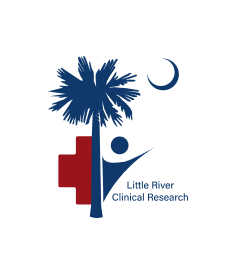
Clinical trials are the cornerstone of all medical advancements and a significant part of medical research. Clinical research has several possible advantages.
This includes being able to get cutting-edge treatments and medical care and being able to help with groundbreaking studies that will help people for generations to come.
This article delves deeper into the potential benefits of clinical research, the importance of clinical trials, and the future of this medical advancement.
What are Clinical Trials?
Clinical trials study cutting-edge methods for identifying, treating, and preventing disease. They aim to ascertain the safety and efficacy of new procedures or treatments. Clinical trials are valuable, but whether or not to participate depends entirely on you and your situation. You and your physician must consider the benefits of clinical research and the disadvantages while considering a clinical trial to determine which is best for you.
The Importance of Clinical Trials
Many medical studies rely on clinical trials to learn more about medicine and provide better care to patients. New approaches to preventing illness development, new techniques for identifying diseases, and novel treatments for existing diseases are examples of clinical research developments and achievements.
Clinical research is only done when doctors determine a new treatment’s safety and efficacy. In addition, it helps doctors figure out the best ways to treat certain diseases or groups of people. It is a clinical study about the safety and effectiveness of medicines and other treatments. Working with communities affected by the disease is necessary for clinical research, which requires complicated and strict testing.
Organizations that fund clinical trials establish independent panels known as Institutional Review Boards (IRBs). These boards support the clinical trial’s scientific oversight. Doctors, statisticians, and community members make up the IRB’s membership. The IRB must guarantee the ethical integrity of clinical studies and protect participants’ rights.
Health organizations or institutes, health workers, and patients who participate in clinical trials have all invested in essential clinical research and understood the benefits of clinical research, which has led to a drop in death and illness worldwide.
The Benefits of Clinical Research
Researchers use clinical studies to discover how different medical treatments affect other people. They might be used to test new medicines and ways to stop diseases, find them early, and improve people’s lives. There are many benefits of clinical research. Below, we shall discuss a few ones:
Cutting-Edge Management
In some treatment cases, participants have access to adequate and potentially new drugs that aren’t even offered to the public. People who take part in clinical studies have the chance to be the first people to use new trial methods.
In conclusion, novel approaches may help to improve the quality of life and even save lives.
Possibility of Successful Therapies
Researchers specializing in clinical trials hunt for methods to enhance the standard therapies offered to patients integral to the same process and clinical research studies. One of the benefits of clinical trial research is that study participants obtain higher doses of medication than they do now. Successful remedies for illnesses or ailments that cannot be treated with the present standards of care or techniques of care are frequently found in clinical trial research studies.
Tracking Health
Numerous clinical research projects track individuals receiving medical care.
Participants are closely observed to make sure they talk about the side effects and their experiences. Additionally, a tiny percentage of participants know how to monitor their health and therapies.
Getting Professional Care
Doctors and other medical professionals with in-depth knowledge of illness and diseases make up the trial team for clinical research projects. They will offer constant attention and care. Experts in clinical trial research studies may provide participants with the most significant medical advice and inform them of the benefits of clinical research to enable them to make the right choices.
Possibility of Aiding Communities
Even if they do not get anything from clinical research studies, individuals who participate in clinical trial research receive the support of the entire medical community. Every clinical trial research study falls under the additional advantages of clinical research in the healthcare industry. The importance of clinical trials lies in their contribution to advancing medical knowledge and improving patient care.
The Procedure for Executing Clinical Trials
Clinical trial methods are carefully thought out to protect participants, ensure scientific accuracy, and protect data integrity. The process starts with the design and planning stage, in which scientists create a thorough protocol that describes the goals of the study, the population being studied, the specifics of the intervention, the techniques for gathering data, and the statistical analysis. Following that, regulatory bodies and ethical oversight committees thoroughly assess the trial to determine its scientific value and moral soundness. Clinical researchers must know clinical practices and obey regulations.
Once they have permission, researchers find people fit to participate in the study and start the intervention or observation according to the study protocol. During the trial, monitoring, collecting data, and reporting adverse events are all done with great care, which allows for the creation of high-quality proof. The trial concludes with data analysis and interpretation. Results are shared at scientific conferences and in journals with peer review.
The Future of Clinical Research
With advances in big data analytics, artificial intelligence, and precision medicine, clinical research has a bright future. These revolutionary trends can significantly alter the research domain. Moreover, they facilitate the incorporation of empirical evidence from the real world, patient data, and personalized healthcare methodologies. Furthermore, the increased emphasis on community participation, patient-centered research, and equitable access to clinical trials reflects a shift toward more inclusive and patient-centric research procedures.
The growing demand for qualified professionals in these fields demonstrates the necessity of comprehensive clinical research training programs. Additionally, the rising interest in careers in medical research highlights the need to prepare people for various clinical research professions.
Accepting creativity, teamwork, and diversity will be essential in establishing a future in clinical research. Consequently, patient-centered care and evidence-based practice will combine to generate unheard-of medical advancement and enhance global health outcomes. The demand for clinical research professionals is rising due to the quick development of medical technology.
Additionally, the importance of clinical trials further contributes to this trend. This presents many career options for those who want to impact translational research. Additionally, it offers opportunities for those interested in creating medical devices.
Wrapping-Up
To sum up, it’s impossible to say enough about the benefits of clinical research to the future of modern healthcare. Clinical research is vital to medical innovation and improving patient care, from developing precision medicine to discovering life-saving therapies.
Clinical research must be conducted with ethical concerns, scientific rigor, and cooperative collaborations to maintain its integrity and impact. This approach ensures that clinical research continues to make significant and long-lasting contributions to world health.
